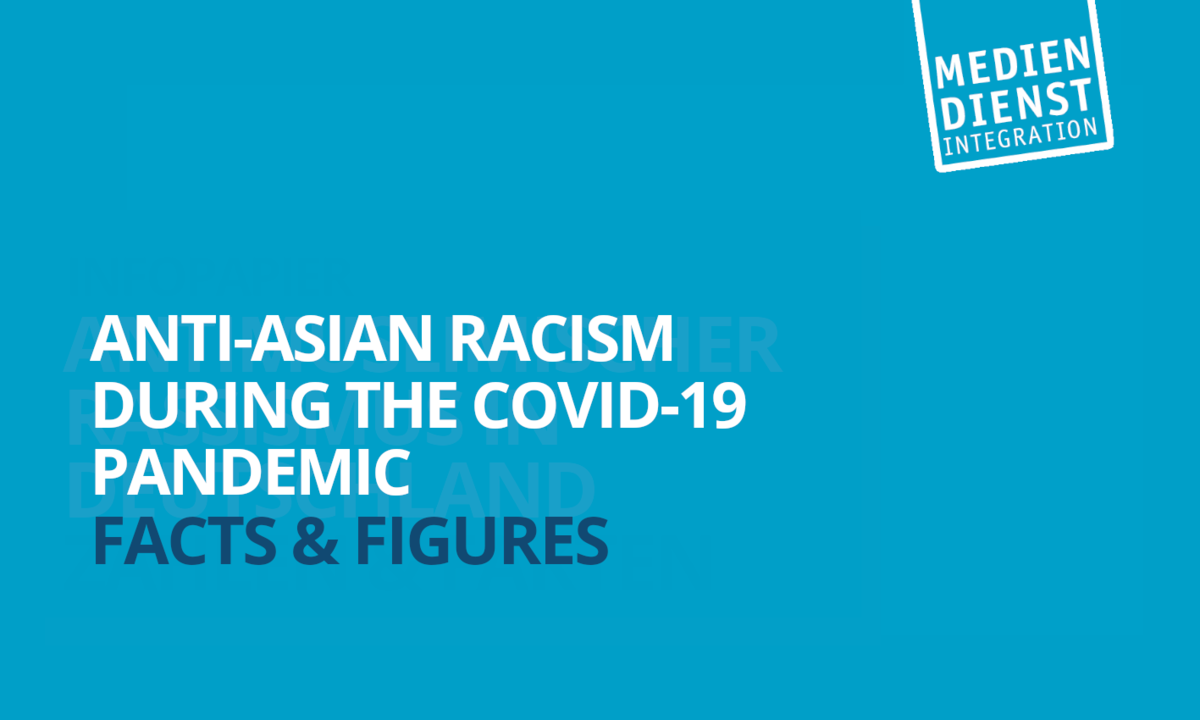Research across different countries has shown that migrants and ethnic minority populations are disproportionately affected by COVID-19. While representative data is limited in the German context, several studies suggests that post-migration minority populations are more at risk to contract COVID-19. These risk factors are largely connected to social-economic inequalities, shows sociologist Aleksandra Lewicki from the University of Sussex in her research report for the MEDIENDIENST INTEGRATION. There is no evidence to support prominent statements that attribute collective responsibility to specific ethnic groups or their cultural practices (e.g. 'family visits' to Turkey or the Balkans or 'Eastern European' and Turkish weddings).Source
Key findings (the full report is in German and available here):
Post-migration minority populations are more exposed to a range of risk factors for a COVID-19 infection:
- Type of employment: They are overrepresented in professions that involve frequent social contact.
- Housing conditions: They often live in socio-economically disadvantaged and more densely populated areas.
- Overall health: These employment and housing conditions often have a negative effect on their health.
1.) Over-representation in high-risk professions
Compared to people who can work from home (e.g. University teaching staff in Germany), employees who work indoors and have frequent exposure to social contacts are five times more likely to contract COVID-19. The evidence suggests that health and social care workers were particularly at risk in this regard. Postmigration minorities disproportionately frequently work in professions that involve the provision of health and social care.
Another risk factor are precarious employment conditions, which are particularly common in storage facilities, private security, meat processing plants or garment factories. Again, immigrant and ethnic minority populations are overrepresented in these sectors.Source
2.) Socio-economically disadvantaged neighbourhoods
The risk to contract COVID-19 is higher in areas in which people live in close proximity to one another: this includes housing conditions with limited space, or where several people share facilities, including across generations. Residents of socio-economically less well-off areas also are more likely to rely on public transport.
Research into Berlin’s neighbourhoods has shown that infection rates were higher in more ethnically diverse areas. These areas tend to be more densely populated.Source
3.) Overall health
Insecure employment conditions and unemployment have been found to negatively impact on people’s health, including by inducing stress and various health conditions. Socio-economically disadvantaged population groups have been disproportionately frequently diagnosed with diabetes, heart conditions, depression, heightened blood pressure, obesity or respiratory diseases, and generally have lower life expectancy. Pre-existing medical conditions, however, can impair the immune system and increase the severity of a COVID-19 infection. Immigrants and ethnic minorities disproportionately frequently work in jobs that pose such risks to their health.
Another aggravating risk-factor is discrimination that post-migration minorities face in the health care sector – in 2020, the Federal Anti-Discrimination Agency registered heightened numbers of complaints by people perceived or self-describing as Asian. They reported cancelled medical appointments and other forms of exclusion.Source
Lewicki argues that policy-makers need to take these research findings into account and develop comprehensive political solutions that can help to reduce these health risks. Not only is there no evidence that justifies blaming affected communities themselves, she says, it also is politically dangerous and harmful.
Article: Carsten Janke; translation: Martha Otwinowski
Sie sind Journalist*in und haben weitere Fragen oder suchen Fachleute zum Thema? Dann können Sie uns gern kontaktieren. Wir helfen schnell und unkompliziert. Unsere Texte und Grafiken können kostenfrei unter den Regeln der Creative Commons und unserer Namensnennung verwendet werden. Dies gilt nicht für Bilder und Fotos, die wir von Dritten erworben haben.

